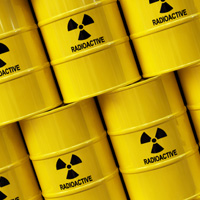Remarks as part of an American Academy of Arts and Sciences panel discussion at the University of Chicago.
What impact might the Fukushima accident have on the average citizen’s view of nuclear energy? How might people take this incident into account as they think about risk or policy choices related to nuclear energy? Until this accident, it was generally agreed that we were heading into a nuclear renaissance, but that is no longer the case. Many countries are now reconsidering nuclear energy and addressing risks that either were altogether unknown or were invisible to and unnoticed by the public. It is possible that Bob’s* characterization of what happened could be almost reassuring for the average citizen to hear. The reactors were fine. A few other things did not work out so well, but that was because of the decisions planners had made. They did not plan adequately for a catastrophe: they could have put the spent fuel storage pods somewhere other than the roof; they could have arranged for the backup electrical generating capacity not to be in formation with the primary source of electrical power. This choice would have allowed the pumps to keep working, and the water could have cooled the fuel and avoided the meltdown in the hydrogen. One can imagine that the planning could have been managed better than it was.
The upside here (if you are looking for an upside) is that by improving nuclear safety, the risks of nuclear energy can be reduced. That is the happiest conclusion that I can come to from this accident, and I encourage others to follow me in trying to think about the risks associated with nuclear energy in the context of an alternative.
In absolute terms, this is not a happy situation. There is the potential for cancers to show up in the long term, and there are immediate problems faced by workers dealing with the emergency. Yet it is worth remembering that nuclear energy accounts for about only 13 percent of worldwide electrical generating capacity. (The percentage of nuclear in the energy mix varies widely from country to country. In the United States the figure is maybe 20 percent; in France it is close to 80 percent.) Most of the electrical energy that we enjoy–67 percent of it–comes from coal, oil, and gas, and each of those sources has its own risks. Our opinions and decisions about nuclear energy should be arrived at in the context of this overall energy picture.
What about renewables, you might ask. Renewables (and I know some people want to push back on this) are not ready for primetime. They will be at some point, but not now. Until renewables are ready for widespread deployment, we unfortunately have to live with the significant degradation of the environment that comes with extracting petroleum, gas, and coal. The National Academy of Sciences estimates $120 billion in health costs each year in the United States alone from these fossil fuels, with twenty thousand Americans dying prematurely as a result of energy choice. For me, this is yet another context for assessing the risks associated with nuclear energy. It is not necessarily prescriptive, but it is context.
Climate change is another consideration. Without entering into a full-scale discussion about the matter, it is easy enough to see that our embrace of fossil fuels has major implications for climate change, which brings with it huge costs and a spectrum of life and death issues. That context also has to be weighed in any equation of risk with nuclear energy.
What these various contexts suggest to me is that we should not abandon nuclear energy. It does not solve our problem: even with a renaissance in nuclear energy, we would not greatly decrease our dependence on fossil fuels for quite a while. But it does help manage it. To pull nuclear energy out of the equation would be a public policy mistake.
Alongside the issue of safety is the issue of security. There are security implications for nuclear energy that do not exist for fossil fuels; this fact has to be taken into account when considering risks. Typically, security concerns are expressed in terms of nuclear proliferation: the fear that more countries will acquire nuclear weapons if nuclear energy spreads around the world. My work used to center on this problem, and it is a serious problem to worry about. However, in my view, it is a manageable problem. Virtually every country worldwide is part of the Nuclear Non-Proliferation Treaty (NPT) regime and accepts international safeguards. (There are a few nations outside the regime, namely, Israel, Pakistan, India, and now North Korea.) The regime is not perfect because even some countries within it are problem cases: Iran, for example. But generally speaking, I would say that proliferation concerns are manageable. Indeed, we have managed them in a number of ways: in treaty regimes; with alliances that provide security; through diplomacy; and by relying on deterrence. Only one country has resorted to use of nuclear weapons, and that was the United States. Deterrence has worked, and I have every reason to believe that it will continue to work in the future. As a U.S. citizen, I am not particularly threatened by nuclear proliferation. It is not trivial, and it requires ongoing work. But I would not say that fears of proliferation would be a reason to walk away from nuclear energy.
There is, however, a difference between the acquisition of nuclear weapons by other countries, which I do not think is such a problem, and the acquisition of nuclear weapons by terrorist organizations. The idea that some group will acquire a nuclear weapon, transport it to an American city, detonate it, and kill a quarter million people is a serious problem that is not open to the same kind of management as national proliferation. Terrorist groups are not candidates for deterrence; anyone who values your death more than his or her life is hard to deter. These groups are sometimes located in unidentifiable places, making it difficult or impossible to take preemptive action or retaliate against them. Nuclear terrorism is a real problem, and it is extremely sensitive to the choices we make as a matter of national policy regarding nuclear energy. Generally speaking, if we did not have nuclear energy, the threat of nuclear terrorism would be close to nonexistent.
If, as a matter of policy, nations controlled the transfer of facilities that produce fissile materials (plutonium or highly enriched uranium), which can be used to make a bomb, things would be a lot better. That is not now the case. As a matter of fact, looking ahead, the United States might even adopt a policy permitting the transfer of uranium enrichment technology or reprocessing technology if other countries expressed interest in transferring these technologies to the United States. Such a policy would quickly make fissile materials difficult to control. The availability of these materials is key to whether nuclear terrorism is prevented or facilitated. The more fissile materials are available, the more likely the stretch is to become a reality. And the fuel cycle choices that we make will play a major role. If we separate plutonium from spent fuel in order to recycle the fuel and capture its fresh energy value, we not only put plutonium in circulation but also increase the presence of fuel fabrication and reprocessing facilities where fissile materials could be obtained. Thus we increase the risk that we will suffer a nuclear terrorism event.
In summary, when I weigh the safety side of the nuclear energy equation, I look at the alternatives and I deem the risks of nuclear energy as worth embracing. When I think about the security side in terms of proliferation, I consider the risks manageable. On the nuclear terrorism aspect of security, however, I would walk away from nuclear energy if it meant embracing plutonium fuels. Referring to the type of nuclear fuel sample could seem a little inside baseball for some of you, but for me it means everything. And I would suggest that as citizens it should matter to each of you as well.
*Robert Rosner of the University of Chicago, Academy of American Arts and Sciences Fellow, opened the discussion with an overview of how the events at Fukushima unfolded, and introduced the speakers.





